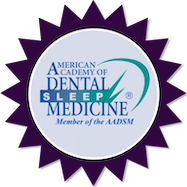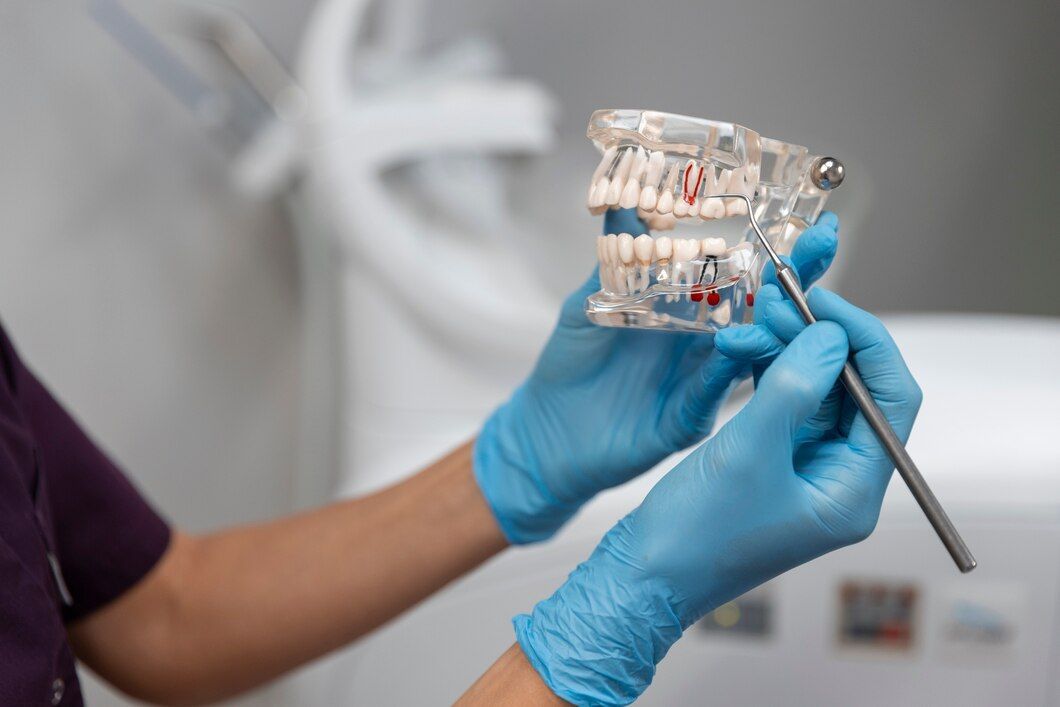Welcome to Fuller Sleep & TMJ Solutions | Greensboro, NC | frontdesk@fullersleep.com
Effective Solutions for Managing Sleep Apnea

Sleep apnea is a condition where breathing repeatedly stops and starts during sleep. This can happen multiple times throughout the night, leading to poor sleep quality and other health issues. Sleep apnea can affect anyone, but it's more common in older adults and those with certain risk factors like obesity.
In this article, we will explore how sleep apnea impacts daily life and discuss various management options. By understanding these solutions, you can take the necessary steps to get a better night's sleep and enhance your overall well-being.
Understanding Sleep Apnea
Sleep apnea is a serious sleep disorder where your breathing repeatedly stops and starts during sleep. There are two main types: obstructive sleep apnea (OSA) and central sleep apnea (CSA). OSA occurs when the muscles in the back of your throat relax too much, blocking the airway. CSA happens when your brain doesn’t send the right signals to the muscles that control breathing.
People with sleep apnea often snore loudly and feel tired even after a full night’s sleep. Other symptoms include waking up with a dry mouth, morning headaches, and difficulty staying asleep. The lack of oxygen during these pauses in breathing can lead to various health issues over time.
Diagnosing sleep apnea usually involves a comprehensive medical evaluation. Dr. Fuller can help identify if you have sleep apnea and what type it is. Once diagnosed, it’s crucial to seek treatment to prevent complications like heart disease, stroke, and high blood pressure. Understanding the basics of sleep apnea is the first step in managing and treating this condition effectively.
Impact of Sleep Apnea on Daily Life
Living with sleep apnea affects more than just your nights. It has a significant impact on your daily life and overall well-being. The most noticeable effect is excessive daytime sleepiness. This constant fatigue can impair your concentration, making it hard to focus at work or school.
Sleep apnea can also affect your mood. Many people experience irritability, depression, and anxiety due to the lack of restful sleep. These mood changes can strain relationships with family and friends. The physical symptoms, like headaches and dry mouth, add to the discomfort and affect your quality of life.
Moreover, sleep apnea increases the risk of accidents. Daytime drowsiness can make daily activities, such as driving, dangerous. Long-term health risks are also a concern. Untreated sleep apnea can lead to serious conditions like heart disease, diabetes, and high blood pressure, significantly impacting your long-term health. Dr. Fuller can help you find effective solutions to manage sleep apnea and improve your daily life. By addressing these impacts, you can enjoy a healthier, more productive life.
Non-CPAP Solutions for Sleep Apnea Management
Many people find CPAP machines uncomfortable or hard to use, but there are other effective ways to manage sleep apnea. One popular alternative is oral appliance therapy. These devices are similar to mouthguards and are custom-made to fit your mouth. They work by keeping your airway open while you sleep, reducing snoring and breathing interruptions. Dr. Fuller can fit you with an oral appliance that is specifically designed to improve your sleep apnea.
Lifestyle changes can also make a big difference in managing sleep apnea symptoms. Losing weight, quitting smoking, and avoiding alcohol before bedtime can help reduce the severity of the condition. Sleeping on your side instead of your back can also prevent your airway from becoming blocked.
Surgery is another option for those with severe sleep apnea who do not respond to other treatments. Procedures can remove or shrink excess tissue in the throat that blocks the airway. Consulting Dr. Fuller will help determine the best treatment plan tailored to your needs.
Expert Tips and Recommendations from Dr. Fuller
Managing sleep apnea effectively requires a combination of treatments and lifestyle changes. Dr. Fuller recommends starting with a thorough evaluation to understand the severity of your condition. Based on this assessment, he can provide personalized advice and treatment options.
Dr. Fuller suggests paying attention to your sleep environment as well. Keeping your bedroom cool, dark, and quiet can improve sleep quality. Using a humidifier can also help by preventing dry mouth and nasal passages.
It's essential to stick with your treatment plan consistently to see the best results. Regular follow-ups with Dr. Fuller can ensure your treatment is effective and make any necessary adjustments. If you notice new or worsening symptoms, contact Dr. Fuller right away for further evaluation and support.
Conclusion
Finding effective solutions for managing sleep apnea is vital for improving your health and quality of life. Sleep apnea can affect various aspects of daily life, from your mood and energy levels to your overall health. By exploring non-CPAP treatment options such as oral appliance therapy, lifestyle changes, and potential surgical options, you can effectively manage your sleep apnea symptoms.
If you’re ready to take control of your
sleep apnea in Greensboro, NC, look no further than Fuller Sleep & TMJ Solutions. Dr. Fuller and our dedicated team are here to help you achieve better sleep and a healthier life. Schedule your consultation now and start your journey toward restful nights and brighter days.

CONTACT US
Fuller Sleep & TMJ Solutions
1515 West Cornwallis Dr Suite 110 Greensboro, NC 27408
BUSINESS HOURS
Monday: 8am – 5pm
Tuesday: 8am – 5pm
Wednesday: 8am – 5pm
Thursdays: 8am – 2pm
All Rights Reserved | Fuller Sleep & TMJ Solutions
© 2023 All Rights Reserved | Fuller Sleep & TMJ Solutions
Website designed by: Morningdove - Accessibility Statement












